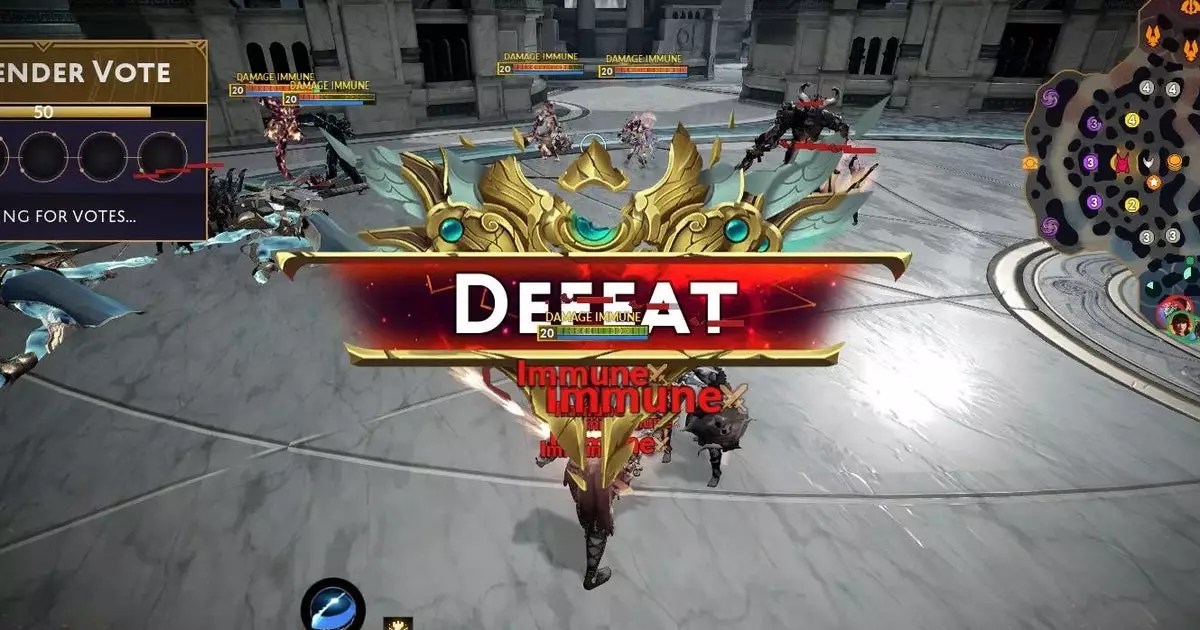The gaming industry is notorious for its volatility, and recent events at Hi-Rez Studios illustrate this harsh reality. Just a month after the launch of the highly anticipated free-to-play beta version of Smite 2, the studio has reportedly laid off a significant number of employees, a decision that raises eyebrows and concern about the future of multiple titles under the Hi-Rez banner. The prevailing sentiment among industry observers is that these layoffs reflect deeper issues within the studio, which has also been beset by previous rounds of job cuts.
In a recent announcement, Hi-Rez Studios acknowledged a “reduction in force,” affecting an estimated 20-30 employees. However, estimations from industry insiders and affected employees suggest that the actual number may be as high as 50 or 60. This mass departure includes individuals from a variety of essential roles—programmers, UI designers, marketing staff, and quality assurance personnel, to name a few. The layoffs come on the heels of a similar downsizing just four months prior, indicating a troubling pattern within the studio.
The company asserted that the layoffs aim to streamline operations and focus on Smite 2’s long-term sustainability. Yet, the decision to leave other popular games like Paladins and Rogue Company without any updates raises questions about Hi-Rez’s commitment to its fan base. While the studio claims that servers will remain operational for these titles, the lack of new content suggests a shift that prioritizes profit margins over player engagement and loyalty.
The decision to cease updates for long-standing games has left many fans disheartened. Titles such as Smite and Paladins have cultivated dedicated communities over the years, and the abrupt halt to their ongoing development is a significant blow. In the gaming landscape, continuous updates and community engagement are crucial to maintaining player interest; thus, the decision to pull resources away from these games could lead to a gradual decline in their player bases.
For the time being, Hi-Rez assures fans that existing content will continue to operate as the servers remain active. However, players are likely to feel the absence of new features, balancing changes, and events that keep such games fresh and engaging. This static approach contrasts with the fast-paced nature of the gaming industry, where players often seek dynamic experiences and regular content updates.
Hi-Rez Studios is not alone in facing challenges within the gaming industry ecosystem. The past few years have seen numerous companies, including well-known entities like BioWare, struggling to maintain their workforce amid economic pressures and shifting market demands. The current economic climate has intensified scrutiny on game developers, leading to a sense of uncertainty about job security and the future of beloved franchises.
The broader implications of Hi-Rez’s actions could signal a worrying trend for game developers who rely heavily on microtransactions and free-to-play models. The potential fallout from these layoffs might result in a talent drain that could affect future game development and innovation. Established studios like Hi-Rez must now navigate a precarious balance between financial viability and creative integrity in an industry where player engagement can make or break a title.
The leadership of Hi-Rez Studios, particularly CEO Stewart Chisam, is under the microscope as stakeholders question the direction of the company. Chisam’s recent decision to delete his social media account following the layoffs has further fueled speculation about internal turmoil. The management’s approach, described by some as a reactive rather than a proactive strategy, raises questions about their vision for the company’s future amidst a competitive industry landscape.
While Hi-Rez is determined to channel resources into Smite 2, critics argue that this single-minded approach might alienate loyal fans of other titles. The decision to prioritize one franchise over others may yield short-term gains, but if it causes a loss of goodwill among existing player communities, the long-term repercussions could be dire.
The recent layoffs at Hi-Rez Studios signify more than just a reduction in workforce; they reflect a broader challenge confronted by game developers in an unforgiving industry. As the studio bets heavily on Smite 2’s success, the fate of long-term franchise staples hangs in the balance. While the promise of dedicated support for Smite 2 offers a glimmer of hope, the ongoing loss of talent raises critical concerns about the company’s sustainability and ability to innovate in an ever-evolving market. The future of Hi-Rez—much like many within the gaming industry—remains uncertain.


Leave a Reply